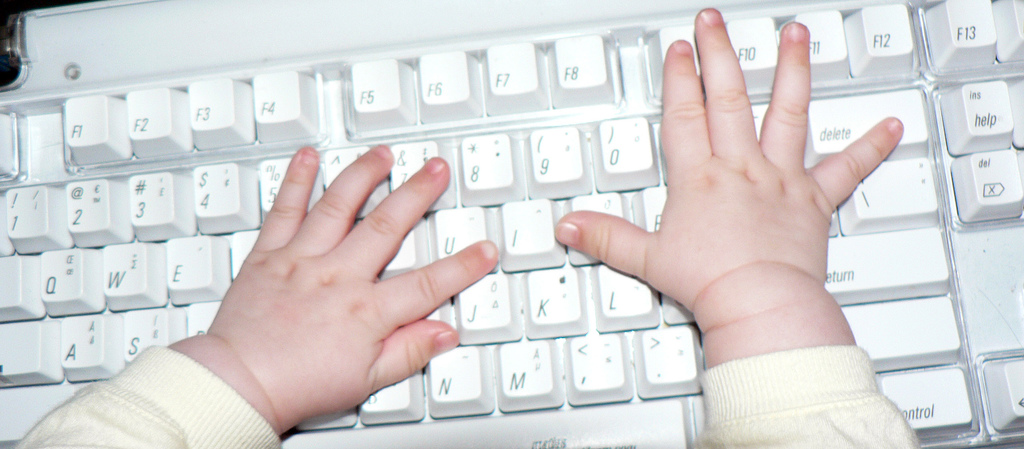


Parenthood is filled with emotional, semi-rational decisions, and none of these is more visceral than naming a baby.
Today’s most popular names have a weird commonality – they’re mostly written with the right hand on a typical keyboard.
For the past few years, researchers have been developing theories about the QWERTY effect, where letters typed with the right hand are considered more positive than those typed with the left hand (take that: W-R-I-T-E-R is left-heavy). In 2012, Daniel Casasanto, a psychologist now at the University of Chicago and colleagues tested this phenomenon in three languages, and that even made-up words and words that are rarely typed are rated as more positive when using right-hand keys on a keyboard.
That’s because there are fewer keys on the right side of the keyboard, so typing on that side is easier – even for lefties.
All this bias is having subtle influences on the way our language changes over time, say the researchers. “People responsible for naming new products, brands, and companies might do well to consider the potential advantages of consulting their keyboards and choosing the ‘right’ name,” they wrote.
It’s also having an impact on the names we choose for babies. In a follow-up study, the researchers showed that the QWERTY effect seems to be biasing names chosen for babies.
Using data from the Social Security Administration, Casasanto and colleagues examined 788 names given to 100 children or more in the years between 1960 and 2012. They found that around 1990, when the QWERTY keyboard became popular, names started to creep into the right hand letters. Names invented after 1990 “have significantly higher RSAs [right side letters] than names used during the previous three decades,” they write.
Olivia, Jacob, William, Mia… many of the names on this Social Security website follow that pattern.
All this points to how our perceptions are shifted by subtle things that we may not even be aware of. Language used to be something that was spoken – yet now, for millions of people, most communication is mediated through a keyboard. “As people develop new technologies for producing language, these technologies shape the language they were designed to produce,” write the study authors.
Citation:
Casasanto, D., Jasmin, K., Brookshire, G. & Gijssels, T. (2014). The QWERTY Effect: How typing shapes word meanings and baby names. In P. Bello, M. Guarini, M. McShane, & B. Scassellati (Eds.), Proceedings of the 36th Annual Conference of the Cognitive Science Society. Austin, TX: Cognitive Science Society.
